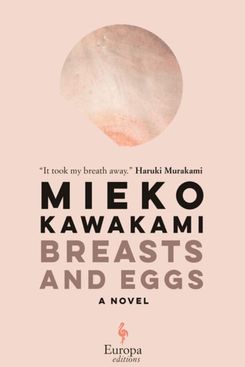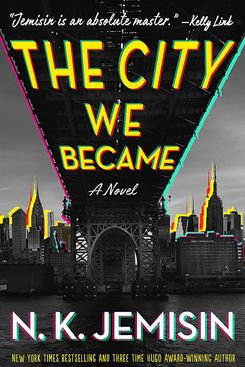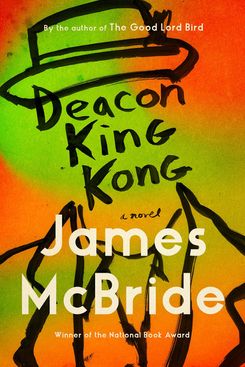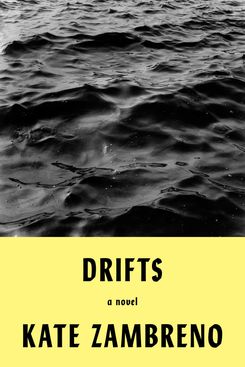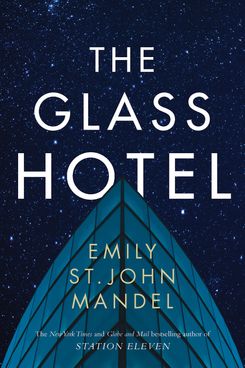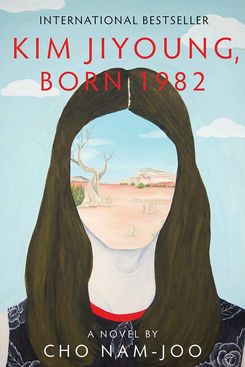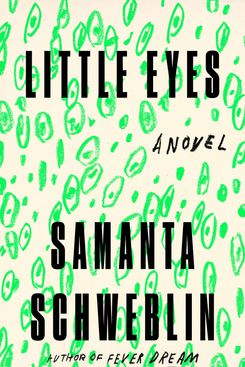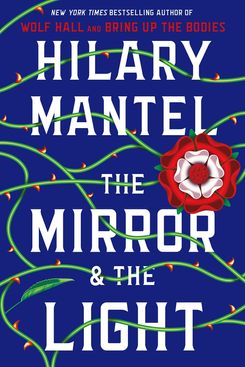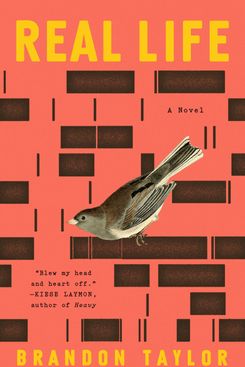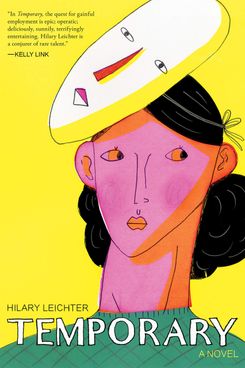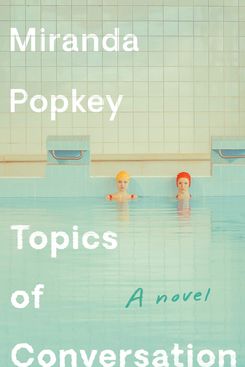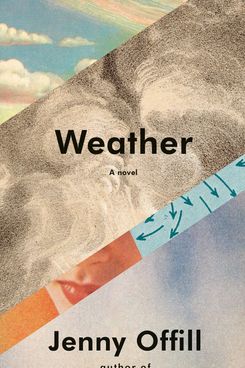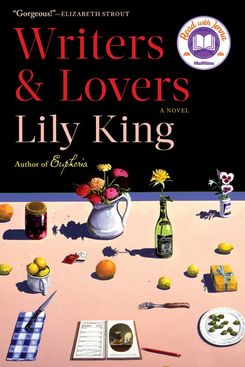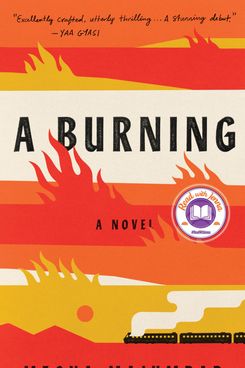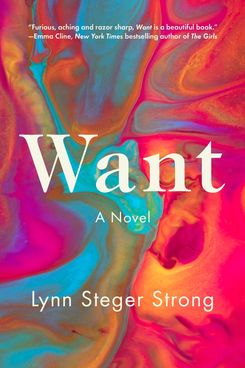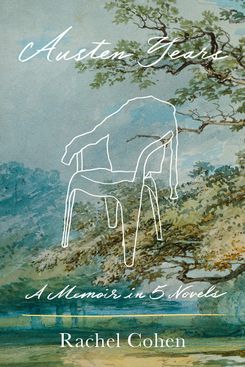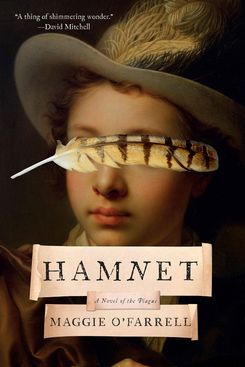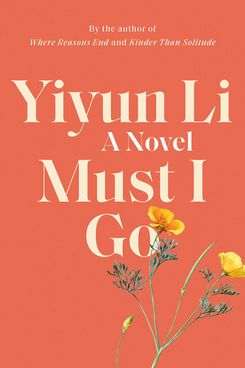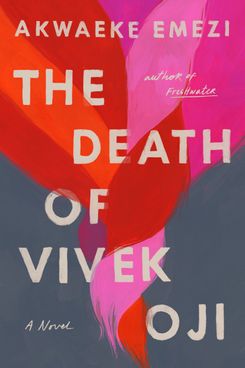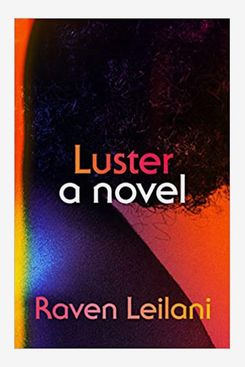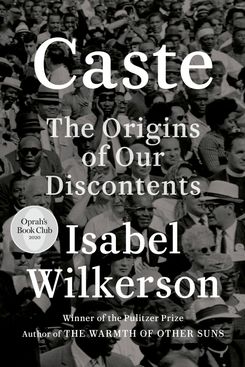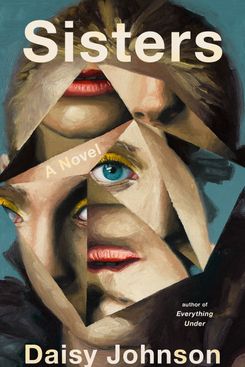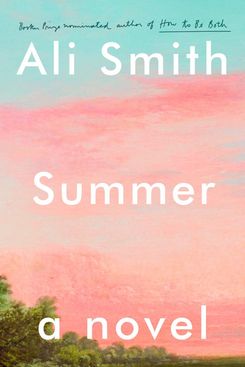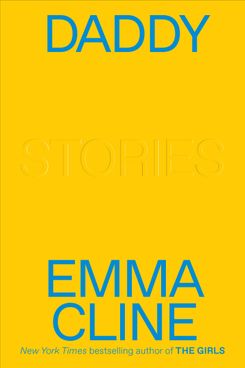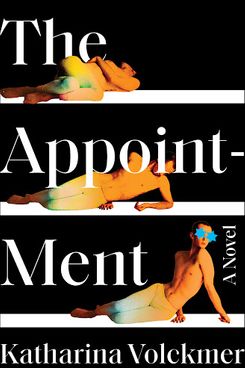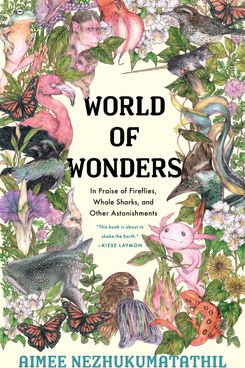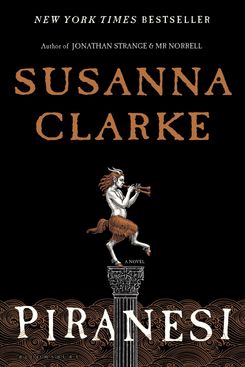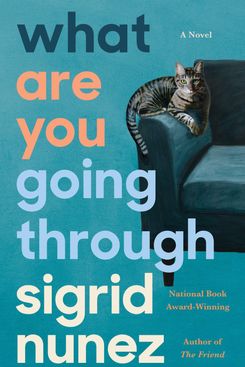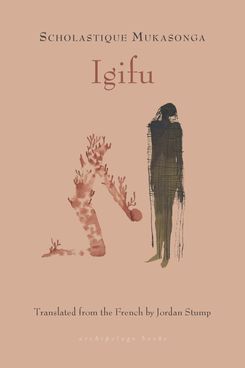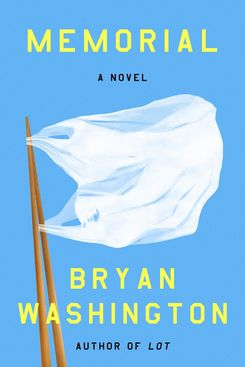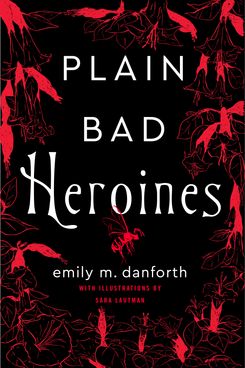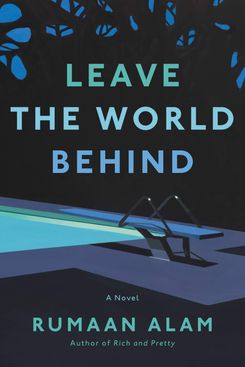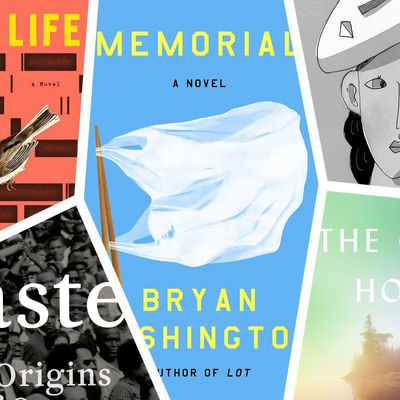
Since the coronavirus descended on America, interruptions to the publishing world have been scattershot and hard to predict. Some novels, like Hilary Mantel’s The Mirror and the Light, squeaked out just before supply chains went wonky and fears about disinterested audiences sent publishers scurrying. A gush of other big books were pushed to the fall (Elena Ferrante’s Lying Life of Adults, Ottessa Moshfegh’s Death in Her Hands, David Mitchell’s Utopia Avenue), when our collective attention will most likely be swallowed up by the presidential election. It’s a damned hard year, in what’s been a damned hard decade, to release a work of fiction.
And yet the literary landscape — dotted with formally inventive debuts, English-language translations of foreign masterpieces, and long-awaited conclusions to hit historical series — glows in Technicolor, like one of David Hockney’s renderings of lime hills and orchid country lanes. Fiction is rising to contemporary challenges and demands, confronting the certainty of a climate disaster and the exhaustion of gig workers and the infiltration of spying tech without sliding down a cliff into sheer advocacy or Zeitgeist-y drivel. It’s been a bad year for virtually … everything, but there is still a lot of pleasure to be found in these essential works.
This list includes books published between January and December, and was updated regularly.
It’s actually pretty hilarious that this novel comes with a Haruki Murakami blurb on the front, in which he declares that Breasts and Eggs “took my breath away.” Murakami, the only contemporary Japanese novelist many Americans read or have even heard of, notoriously trots out disturbing older male characters who leer at or fetishize young women’s bodies, and in an onstage conversation, Kawakami directly questioned Murakami, asking, “Where does this obsession with breasts come from?” This novel, a long, glistening extrapolation of how three women poke at and consider their flesh and figures — one considers breast implants, another endures puberty, and the third heads into the wilds of sperm donation — is essentially a jab right in Murakami’s eye (or, you know, wherever). It’s also, in its own right, a clear, vivid story about the shame that comes along with a woman’s body, and the multitude of ways we can reject that shame.
New Yorkers, this one is for you. Jemisin has only been publishing for a little over a decade, but in that time she’s written nine novels, won three Hugo Awards (in a damn row!), and put out some of the most innovative and riveting sci-fi of the past 50 years. The City We Became moves in a new direction from her Inheritance and Broken Earth series, situating itself in today’s New York where, alongside the mundanity of daily life, there also happens to be a supernatural contest between the five boroughs — each represented by an avatar — and The Enemy, which represents exactly what you think it might: police brutality, the criminalization of poverty, etc., etc., etc. Jemisin is down in the nitty-gritty of how New York operates, moving through particular streets and neighborhoods, fully aware of what each represents. And she creates a fizzy, practically joyous world where battle is excruciating but forces of good find wildly inventive methods for keeping diversity and faith alive. Read it right now, people, if you want a dose of hope and resistance.
The titular character in McBride’s novel isn’t really named Deacon King Kong — he’s a church deacon, sure, but he’s actually known around his Brooklyn community as Sportcoat, and the King Kong bit is a reference to his beer of choice. He’s 71, a bit of a drunk, a product of a housing project, and for a reason entirely unknown even to him, one day in 1969 he walks up to a teenage drug dealer and shoots him in the head, setting off a chain of reactions half-desperate and half-comic, in that way that only entrenched societal malaise can be. McBride has a knack for building minutely detailed and colorfully charactered historical worlds, places, and people with accents, agendas, and proclivities so idiosyncratic they call to mind Dickens, if the prolific Victorian had given a real rat’s ass about racial injustice. In Deacon King Kong, he adds on layer after layer — like that pile of nicknames the protagonist carries around — but whips them up into a delicate, coiling web, the sequenced genome of despair and restoration.
The sound I heard in my head while I read Kate Zambreno’s Drifts was of bare feet unsticking themselves from a wood floor as they pattered through an empty old house, windows open to a hot wind. That’s how sensory this novel is, despite being set almost entirely in the mind of a Kate Zambreno character who is working, and avoiding, her own novel called Drifts. When Fictive Kate (if she is fictive? the eternal question) doesn’t write, she spends equal time obsessively reading about Rilke and Wittgenstein and playing with her dog, Genet. It’s a creation story that ably leaves in the in-between bits, drawing a startlingly accurate account of what it means to be in the process of writing while barely putting words to paper. Zambreno has been putting out smart, underrecognized novels for a decade — she ought to be Rachel Cusk’d, but perhaps the world isn’t fair enough for that.
Emily St. John Mandel is the great disaster artist of our time. Station Eleven, her (freshly relevant) world-ending pandemic novel, has sold over a million copies and developed a cult of zealous proselytizers, including me. In The Glass Hotel, a financial-apocalypse tale, she tells the story of a Bernie Madoff–like white-collar criminal named Jonathan Alkaitis who bilks investors out of billions and is caught when the 2008 downturn begins; she buttresses his story with a cast of characters including his Wall Street accomplices and the victims whose futures are completely upended. The novel’s centrifugal force, however, is Vincent, Alkaitis’s thoughtful, unlikely trophy wife who disappears in and out of what she calls “the kingdom of money” as seamlessly as if she’s made of vapor — and goes over the side of a ship on the first page. Like all of Mandel’s work, The Glass Hotel links together far-flung stories and dips in and out of multiple timelines. The term “transportive” is used far too frequently to describe literature that takes us, well, anywhere, but in this case, it’s the perfect descriptor for an exquisitely structured adventure across oceans and into unseen worlds.
Originally published in 2016 and released this year in translation, Kim Jiyoung, Born 1982, has been, rightfully, a knockout hit in Korea, where it’s sold over 1.3 million copies and launched its author to fame. One day, Kim Jiyoung, a South Korean millennial housewife and mother, wakes up and thinks she’s turned into her mother. Not in the “I can’t believe my hands look like this” way but quite literally; she’s having a dissociative break. The novel’s plot is relatively simple: Jiyoung is aimless and dissatisfied, slowly losing her mind to the steady tick of entirely ordinary and unremarkable grievances. On the post-Handmaid’s Tale literary scene, the trend has veered toward depicting unreal horrors in women’s lives. Kim Jiyoung swings as far as possible in the other direction: Its absolute mundanity is startling and effective. Is there any woman in the world who can’t relate to the emotional death caused by a thousand stacks of laundry, spilled cracker crumbs, and trips to the pediatrician? This is a defining novel for young South Koreans and deserves a massive readership in the U.S., too.
“The first thing they did was show their tits.” And so begins Samanta Schweblin’s Little Eyes, the latest unsettling offering from the relatively underground Argentinian novelist. Kentuki — what appear to be tiny plushies armed with cameras, some weird combination of Tamagotchi, Amazon’s Alexa, and animatronic pets — are a technological craze, spreading around the globe until, as one character succinctly puts it, even old people know what they are. First we meet teen girls in South Bend, Indiana, who put theirs to use by baring their chests for it. Then Schweblin darts around the world, to Oaxaca and Antigua and Zagreb and more, cities and nations that come to follow Forster’s infamous maxim to “only connect” — to potentially luminous or insidious degrees. What does it mean to build a relationship on transmitted pixels? Who really lurks inside the connective streams wrapping around the globe? Schweblin’s work has been passed from novelist to novelist over the past few years — her work has informed all the Kafka-esque up-and-comers who see the world as too strange to portray inside the bounds of realism. Little Eyes isn’t dystopian horror so much as a delightfully warped representation of the societal consequences of keystrokes.
Occasionally, you watch a period piece in which the language and costumes and gestural ticks of the characters are so in tune with their historical setting that it stops feeling like a bravura performance and turns into your complete idea of what that time period was really like. Reading this third and final installment of Mantel’s double Booker-winning Thomas Cromwell trilogy offers that same time hop, it’s so replete with the minutiae of daily Tudor life, right down to the ingredients for various meat dishes. But it’s Mantel’s dedication to Cromwell’s singular voice (and to his redemption from the slums of history) that keeps The Mirror & the Light on par with Wolf Hall and Bring Up the Bodies — no small feat considering the ecstatic reception over those two. This final book traces the last few years of Henry VIII’s closest adviser’s life, right up until his own walk to the chopping block. Yet again Mantel brings to gruesome life the quivering, bowel-tightening horror of death by sharpened steel.
How many campus novels with a black protagonist have you read? I admit I hadn’t read a single one until Real Life, partly out of my own ignorance and partly because the genre leans so, so heavily toward white stories. (David Lodge, Richard Russo, Chad Harbach, Donna Tartt, and so on.) With this debut, Taylor reclaims the genre, setting Real Life over the course of a weekend, as Wallace, a biochemistry grad student with an experiment spinning out of control and serious doubts about his place in a predominantly white program, flits between contemporary skirmishes and indignities, and his personal history of abuse and alienation. What’s miraculous about Wallace’s story is the varieties of strength he draws on without ever devolving into a trite tale of woe or superhuman achievement. Instead, Taylor’s writing, which is as strategically formulated as any of Wallace’s calculations and as thoughtfully parsed as any of his experiments, bandies back and forth between the many strains of humanity that live inside one man.
Everybody’s working for the weekend. And on the weekend. And until rather late at night — or at 5 in the morning. The cultural emphasis on productivity surely isn’t new (you try being a factory worker in the North of England during the Industrial Revolution), but a slew of sly, witty fiction — Helen Phillip’s The Beautiful Bureaucrats, Halle Butler’s The New Me, Catherine Lacey’s The Answers — has awakened new interest in chronicling the absurdity and degradation of piecemeal underemployment. Hilary Leichter’s debut novel, Temporary, carries this idea to a brilliant new height, following its narrator through the 23 jobs her temp agency sends her way. They range from the mundane (managing traffic) to the bizarre (pretending to haunt a house). Leichter’s voice is lively, practically sprightly, and offers a smart balance to the big question she asks — When everything is considered work, how do we live outside of it?
The Rachel Cusk “Faye trilogy” comparisons are apt, it’s true, for this debut novel, a set of conversations the unnamed narrator conducts over a decade and a half. But Topics of Conversation is not some auto-fictive Xerox of better-known work. The unnamed narrator (raised by tippling, privileged Californians but unable to settle into any kind of steadiness) is unreliable, not a trustworthy teller of her own story, and wants you to know it. The conversations — mostly revolving around the relationship between desire and revelation, (“Speaking desire … it’s like telling people how to hurt you, handing them instructions,” she says) — slowly chart out the story of her young adult life, through a divorce, a pregnancy, etc., but also through her morphing ability to understand why we share bits of ourselves and what sorts of traps we end up in when we do. It’s a remarkably put-together debut that, ironically enough, undoes the very notion of fiction as a way to better understand other people.
Civilization is probably ending. You don’t need to be a prepper to believe that. A mass sixth extinction, city-drowning hurricanes, oceans turning into acid dumps. Weather, a climate crisis–obsessed novel, traces a few months in the life of a librarian who is coming up against what Offill calls “the twilight knowing,” i.e., the admission to herself that we cannot solve the climate problem and that the world as we know it cannot sputter on indefinitely. Told in Offill’s signature fragmentary style, it skitters around in her brain, which is crammed full of worrying facts about our sagging planet (“There are 6,000 miles of sewer in New York City, and all of them lie well below sea level”) and is also trying to come to terms with the future she knows her child will one day inhabit. “Climate novels” are too often doddering, scoldy affairs that end in some lamely delivered plea to recycle or something. But Offill lets readers fill the space between her paragraphs with their own fears and then walks with them to the abyss. It’s a plea to feel climate desperation and then cross over to the other, unknown side.
I wanted to bottle up this novel into some sort of youthful essence, an eau de parfum comprising heavy notes of writerly nostalgia and wispier whiffs of long, stretched-out afternoons gazing out the window waiting for the Muses to waltz in. Over the course of a year, Casey, the struggling young writer protagonist, works long hours as a waitress, bikes around late-’90s Cambridge, cries about her recently dead mother, agonizes over her (non)progressing novel, and drifts between two men. King’s last novel, Euphoria, was an innovative love triangle set in New Guinea, based on the life of anthropologist Margaret Mead. Another three-sided affair with a brilliant woman at its center seemed redundant — thanks, but we’ve read this already! But Writers & Lovers is so certain of its individuality and written with such meticulous style that every page is like an heirloom piece of silver, shined up until all the intricate carvings gleam.
Physically, A Burning is a little slimmer than most hardbacks, with short, rapid-fire chapters. But it’s jam-packed with voices and torrents of information, like you’re wading through a crowded, noisy, heavily scented city street and zooming in on the singular lives that constitute the masses. Jivan is a bright, hardworking young woman from the Kolkata slums who is jailed after she witnesses a terrorist attack, posts about it on Facebook, and is accused of perpetrating it. Lovely is a bombastic hijra (a third gender recognized by India), tutored by Jivan, who dreams of Bollywood stardom. And PT Sir, a company man through and through, is Jivan’s former teacher, headed for a life in politics. Majumdar manages the nearly impossible feat of creating a signature prose style for each character (Lovely’s practically bounces off the page) and weighting the three stories against one another in perfect proportion. Propulsive and still thoughtful — about everything from the thirst for social media attention to the persecutions of Muslim Indians — A Burning is a rare debut novel that earns book club accolades and a James Wood endorsement, and deserves both.
Want is so self-aware I half-expected it to sit up on my nightstand and start chatting with me in the middle of the night about the worries it couldn’t shake. Its protagonist, Elizabeth, scratches together her financial pittance adjuncting and teaching at-risk high schoolers. She and her husband have just declared bankruptcy. Her small daughters delight her and leave her sticky, desperate to be alone with a book. But while Elizabeth’s simple desires — to not fret about money, to feel some security in this world — spew out, she maintains a clear recognition of her place many rungs up the ladder of success. Want leaves you wondering, If this is considered privileged in America, what the hell kind of country are we living in?
Austen Years simultaneously chronicles Cohen’s struggle in the wake of her father’s death and her obsessive rereading of Austen’s novels. Neither effort lags — she manifests the everyday troubles of grief and turns wise analysis of the Dashwoods, Prices, and Bennetts into a study of human character, making the case along the way that “the memoir form might be demanded by our individualistic and immediate and grief-stricken era, as the novel was demanded by Austen’s.”
Another novel about Shakespeare’s life? Another novel about Shakespeare’s life! This time, in the capable, subversive hands of Maggie O’Farrell (author of the captivating I am, I am, I am: Seventeen Brushes with Death), the Bard himself is left nameless and given very few lines. Instead, the focus is on his wife, Agnes, who must first endure the death of their son Hamnet to plague, and then his father co-opting his life to create Hamlet (the names, apparently, were interchangeable in early seventeenth-century England). Hamnet hangs heavy with Agnes’ grief, but O’Farrell has fingers like a couture embroiderer, and she spangles this novel with sly, artful allusions to Shakespeare’s best work, putting herself on par with the great man himself.
Yiyun Li first started this novel — in which an 81-year-old woman named Lilia, who long ago lost a daughter to suicide, corrects and rewrites an old lover’s diary — years ago. In the intervening years, Li’s 16-year-old son took his life. The reverb resounds heavily, as Lilia edits the life of one person long dead, and wrestles with her inability to do so for her daughter. Li, still an underrecognized talent despite a MacArthur award and years of remarkable work (in a second language), writes every sentence as if it’s crumbling to dust between her fingers.
Pulitzer winner, former poet laureate of the United States, and all-around literary star Natasha Trethewey was 19 when her mother Gwendolyn Turnbough was murdered — shot to death by her ex-husband just outside her Atlanta apartment. Trethewey spent seven years examining court documents and crime-scene photos and her own obstructed memories to write this transcendent memoir. Memorial Drive is a showpiece of what language can do when it’s unfettered from strict narrative; when a poet, with every word a tiny bit of moldable clay, takes prose to new places.
From the first page of Emezi’s sophomore adult novel (2018’s Freshwater put them on the map and brought in a slew of awards and honors), Vivek Oji is, well, dead, a fact you might have guessed. But there are no tricks or sleights of hand here. Emezi traces the life of a queer boy whose body turns up on his mother’s doorstep, and whose evolution and place in his community doesn’t fit into Western narratives about coming out and sexuality. Most winningly, it’s a novel so firmly rooted in a particular place, a small Nigerian town, that it calls to mind Gabriel García Márquez’s Macondo — a fictional place more real than it would be if you could find it on a map. Emezi is a genius.
If I could pull a Christopher Nolan and make time my plaything, I’d go back and make sure I wrote at least 5,000 words on this debut novel about 20-something Edie, whose life is a goddamn mess. The plot is engaging (Edie loses her job and her apartment and moves in with the man she’s been seeing — and his wife and adopted daughter), but it’s Leilani’s way with language, how she gathers up everything wonderful and twee and self-deprecating about the always-whirring brains of shit-lucked young adults today, that marks her as a phenomenal new talent. Call it a Fleabag-ian state of mind, in which every thought is circled back on and interrogated, followed by a great big wink.
Ten years ago, The Warmth of Other Suns, Wilkerson’s deeply affecting dive into the Great Migration, became an instant piece of required reading — not just for history buffs or bookish types but for everyone. Read it. Read it! (It won the National Book Critics Circle Award, among about a dozen others.) Her new book, Caste, has a more ambiguous premise — a reckoning with caste as “an artificial construction, a fixed and embedded ranking of human value that sets the presumed supremacy of one group against the presumed inferiority of other groups on the basis of ancestry and often immutable traits” — but just as forceful a claim as one of the Great Books of our time. It reads like the smoothest fiction and resounds like the loudest call to clarity.
Occasionally, a dove sits on the windowsill above my writing desk. I pretend I can lure her inside, make her a companion who will peck at the keys like we’re in a scene from a more literary Cinderella. Macdonald’s magnificent memoir, H Is for Hawk, gave me this idea, although as she wrangled the goshawk she hoped to tame in the wake of her father’s death, the idea that anything from nature could simply resign itself to human ambition turned laughable. Vesper Flights is another rhapsodical turn from Macdonald, this time in the form of essays, some miniature and some slightly grander, that reflect on how a child of the forest and the meadows can prowl around inside her own teeming brain.
Like the best gothic novels, Sisters turns its setting into a character. July and September are dragged to their aunt’s sagging, rotting house near the York Moors by their mother, who promptly heads for the bedroom and doesn’t come back out. As the girls are left to their own devices, more hints about the disturbing event that sent them packing trickle out, and the house turns into both a den and a trap. In less steady hands, the premise could sail off into the deep end of absurdity, but Johnson’s sure writing keeps everything in check — until a climax that manages to blow some wigs off.
Schtick novels tend to poke me the wrong way: Too much flash and not enough bang. But Smith’s Seasonal Quartet, of which Summer is the final installment, is the rare exception. Sure, Winter lagged a bit, as winters tend to do, but ultimately Smith’s plan — to match the frenetic pace of global politics with feverishly written, Kerouac-style novels about the State of Things — pays off, mostly because each novel has such a firm backbone to hold it up. Summer, whose plot is so secondary to its effect that it’s virtually meaningless to describe, is no different. Follow Smith into the woods: Her route will confound you, and occasionally wild animals will snarl, but the views will make all the difference.
Daddy is one of those innocent words that turns bawdy between adults. That double meaning is at play in Emma Cline’s first short-story collection, which is filled with disgraced men trying to edge back into society and unmoored women testing the waters of their sexuality. Every story crackles: In “Los Angeles,” a pretty young thing working at an American Apparel–type store begins selling her own worn underwear online. In “The Nanny,” a former childminder to the stars revels in her elevation to paparazzi fodder after her affair with her A-list employer goes public. And in the collection’s best story, “A/S/L,” a woman in a luxury rehab facility makes it her mission to humiliate an already disgraced famous chef.
This brief yet mighty novella takes place entirely over the course of a woman’s visit to her London doctor, narrated in a continuous monologue of the protagonist’s woes and wisecracks about the state of the world, specifically her home country of Germany. (“It was never feasible for us to hold down an empire for a thousand years with our deplorable cuisine,” she half-jokes.) She also can’t stop blabbing about how she wants to have sex with Hitler. But this book is not shticky: The Appointment mixes a madcap philosophical treatise with a modern tale of self-reinvention.
“If a white girl tries to tell you what your brown skin can and cannot wear for makeup, just remember the smile of an axolotl,” writes Nezhukumatathil, referring to the salamander-like amphibians, in this hybrid memoir and encyclopedia of nature appreciation. As a child, the renowned poet moved between Arizona, Kansas, New York, and Ohio; along the way, she crouched over ponds and scampered through desert sands, investigating the marvelous fauna and flora she encountered. Each chapter of this book addresses a different creature or plant — the corpse flower, the ribbon eel, the cactus wren — using their lives like a kaleidoscope, for looking at how wild human nature really is.
I adored Jonathan Strange & Mr. Norrell, Susanna Clarke’s best-selling fantasia about a Regency England magician and his protégé, who go to battle with one another while unearthing the forces at work in a mystical shadow world. That 2004 book single-handedly reinvigorated literary fantasy, and Piranesi, Clarke’s sophomore effort, does not disappoint. In this novel about a befuddled man living inside a strange, never-ending series of statue-lined halls, Clarke shows off how readily she can develop entire worlds in a few pages. It’s escape literature, and I mean that in the very best sense.
Nunez won the National Book Award in 2018 for her novel The Friend, in which a writer inherits a Great Dane from her mentor when he dies. Admittedly, I was suspicious when I saw the curled-up cat on the cover of Nunez’s latest novel: Was What Are You Going Through a feline redo? Reader, it is not, though it is just as invested in the individual experience of grief and loss. In What Are You Going Through, a terminally ill woman asks a friend to move in with her — and help her end her life. This is morally and emotionally boggy ground to tread, but Nunez manages the daunting trick of finding clarity and understanding in life’s most inevitable moment: its end.
Igifu is the word for 5-year-old Colomba’s hunger, which is so tentacled and knotty that it takes over her mind and sends her body to the brink of death. It’s also the state of longing that ricochets around these mostly autobiographical stories by Rwandan writer Scholastique Mukasonga. In this book, which was translated from French by Jordan Stump, Mukasonga lays out her grief-bound personal history: her uprooting to Burundi, her eventual move to France, and the unbearable weight of learning that 34 members of her family were killed during the 1994 Rwandan genocide. She filters these real experiences through fictional characters — girls like Colomba, and women who embody the desperation and strength of those exiled from their whole lives. At Igifu’s most wrenching moment, a woman holds in her hands “the list of her dead, of everyone who had died far away from her, without her”; she’s tortured by the knowledge that “there was nothing she could do for them, not even die with them.”
Some prose tiptoes so quietly that you don’t realize until halfway through a novel that it’s dancing all over the room. That’s how I feel about Bryan Washington’s writing, which in Memorial is so tender that sliding some rice noodles into a pot reads like an act of deep intimacy. Memorial is a love story, or, rather, a post-love story, about a couple already on the brink: When Mike, who is Japanese American, finds out his estranged father is dying, he leaves Houston — and Ben, his Black boyfriend — to visit his father in Osaka. At the same time, Mike’s mother, Mitsuko, comes to stay at the couple’s apartment, and soon becomes a begrudging surrogate mother to Ben. At its heart, Memorial is about all the competing claims on our identities, and how we decide which ties to snip and which to tighten.
Plain Bad Heroines is a meta-novel, chronicling both the mysterious deaths of lesbian boarding school students in turn-of-the-century Rhode Island and a present-day film shoot for a Hollywood movie based on that very incident. Danforth uses both late-Victorian and postmodern tropes throughout the book, such as footnotes penciled in by a disembodied narrator, and little ink sketches tucked in the corners. At 500-plus pages, Plain Bad Heroines still manages to be an intoxicating romp.
You may have noticed that things are bad. Leave the World Behind takes the feeling of low-simmering awfulness we’re all experiencing this year and brings it to a boil. White Brooklynites Amanda, Clay, and their two teenagers are on vacation at a charming Airbnb in the far-out Hamptons when the home’s owners — an older Black couple named George and Ruth — show up, claiming that the rest of the East Coast has lost power. The two families uneasily settle into the house together, as more strange happenings pile up: Exotic animals parade through the yard, air traffic comes to a halt, and the families are struck by mysterious ailments. Alam’s characters are meticulously constructed to feel like living, breathing representations of America’s distorted national identity. No other novel this year will have you turning pages so quickly.
Every editorial product is independently selected. If you buy something through our links, New York may earn an affiliate commission.
More From This Series
- Freddie Gibbs Made His Own Lane
- The 10 Best TV Needle Drops of 2020
- The 10 Best Theater Moments of 2020
